With gang violence and child marriage, childhood is short in Rohingya refugee camps
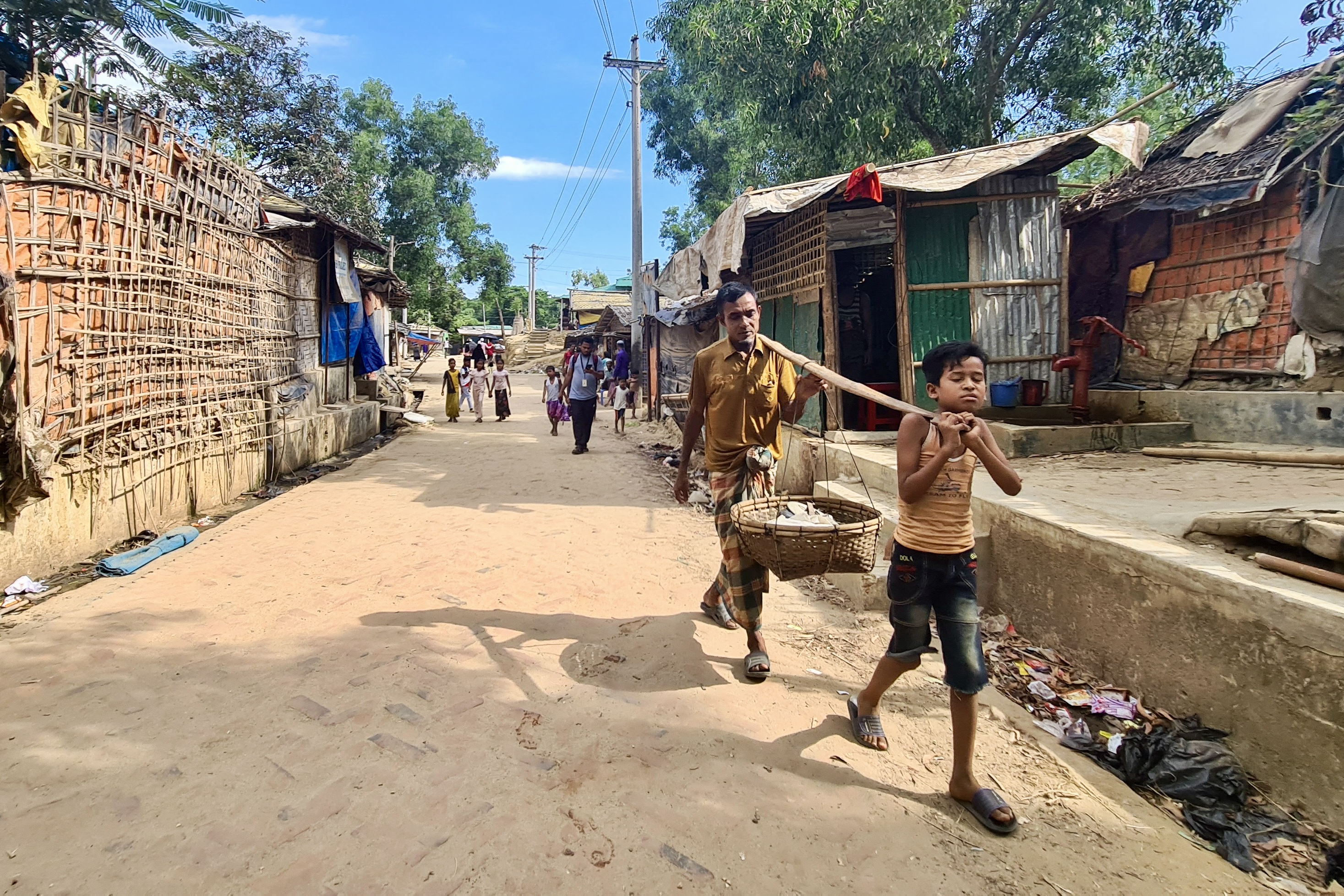
Over one million Rohingya live in squalid and sprawling camps in Bangladesh. Prospects are more than bleak for these refugees from Myanmar. Gang violence is rife in the camps and the number of child marriages is growing.
In Camp 3, in the Ukhia region near the border with Myanmar, crowds of girls and boys are watching a play. On the stage, a man strikes a woman. Shouts ring out – both from the actors and, even louder, from the young audience. Domestic violence is the theme of today’s performance, which is being put on by a group of volunteers who themselves live in the camp.
Plays like this one are a key part of ongoing efforts to educate and raise awareness among the residents of refugee camps in Bangladesh. They are intended especially for minors, who now make up half of the camps’ population. Many of them have known nothing other than the life of a refugee. There is no formal schooling for them in the 33 Rohingya refugee camps, which are scattered around the border region south of the tourist town of Cox’s Bazar.
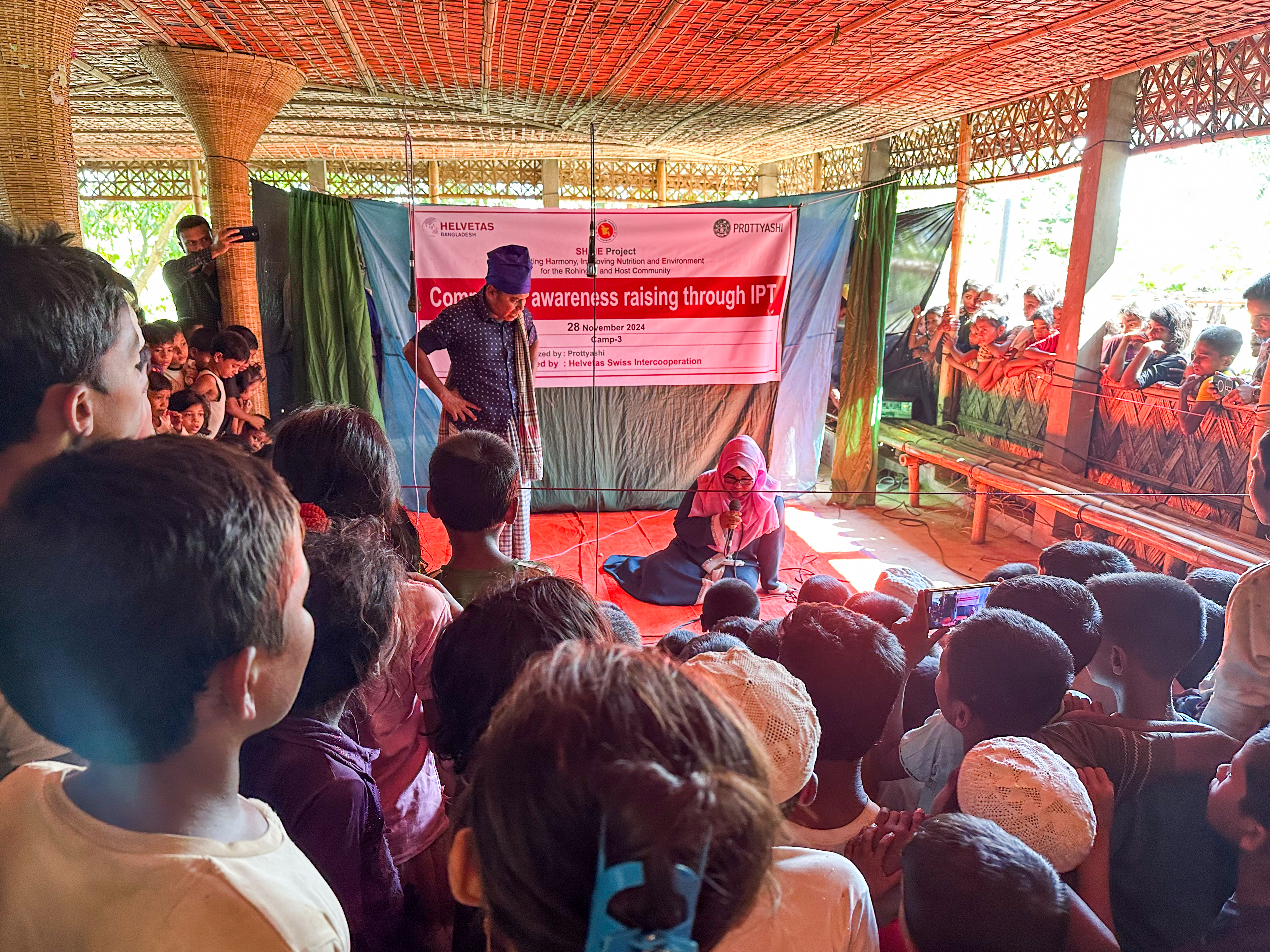
Why we are writing about this
Switzerland was one of the first countries to recognise Bangladesh as an independent state after it seceded from Pakistan in 1971 in a war that resulted in enormous losses. Since then, both the Swiss development agency SDC and numerous NGOs have been active in the country.
The theatre described above is run by volunteers from the local organisation ProttyashiExternal link, which is the implementing partner of the Swiss organisation HelvetasExternal link. The projects with the locals are also implemented by Prottyashi.
During the week of December 16-20, the fundraising organisation Swiss SolidarityExternal link is organising a Solidarity Week. The donations collected will be used to fund projects to protect children from violence and abuse, including the projects described here.
Swiss Solidarity is the humanitarian arm of the Swiss Broadcasting Corporation, SWI swissinfo.ch’s parent company.
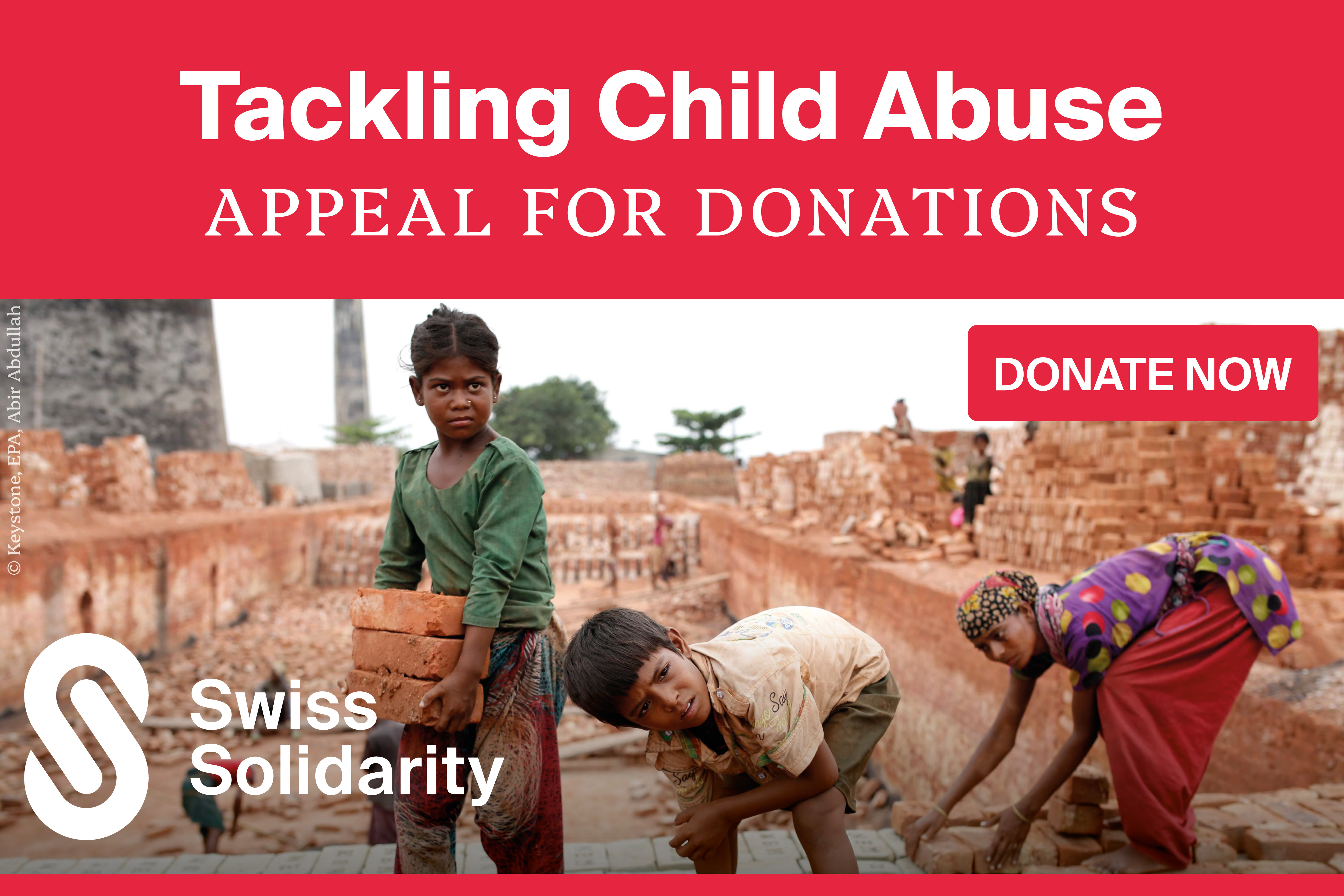
More
Tackling Child Abuse in Switzerland and worldwide
External linkAnother theme of the theatre productions is child marriage, which is widespread in the refugee camps. It is mainly girls who are married off at an early age. On the one hand, this is seen as a protective mechanism, for once girls are of childbearing age the fear of assault increases. Security conditions in the camps have worsened. Criminal gangs operate there, and drug abuse is a serious problem. Some parents hope their girls will be better protected if they get married.
At the same time, families are finding it increasingly difficult to provide for their children – even just to feed them. The Rohingya are completely dependent on food rations, which are provided by aid organisations that have fewer and fewer resources. So the refugees must get by with less and less. Compounding the situation, an estimated 40,000 more people fled across the border from Myanmar in the past year because of the war there. The government in Dhaka no longer registers them. The camps’ longer-term residents now share their food with the newcomers.
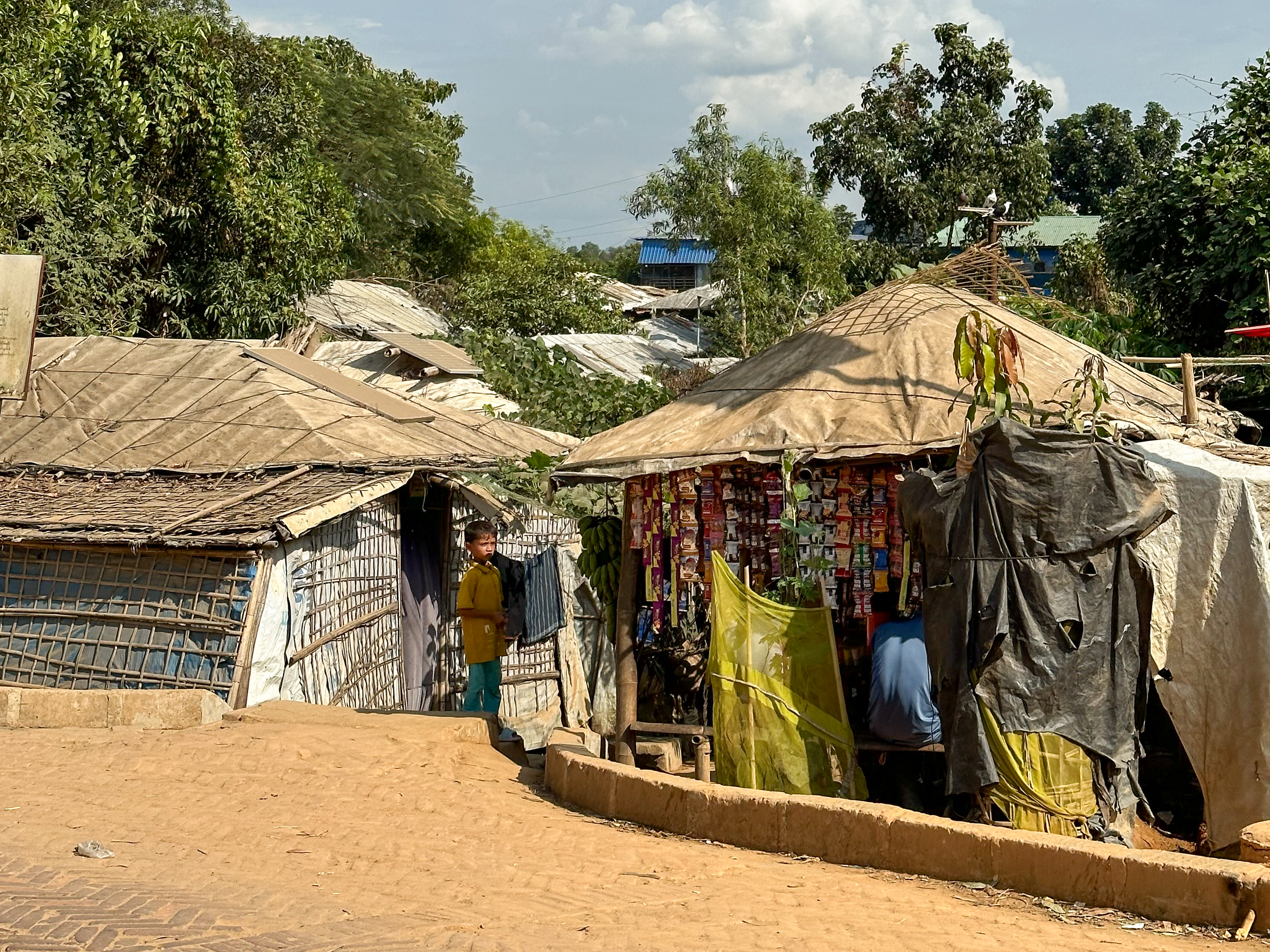
Child marriage in Bangladesh
Bangladesh is among the countries with the highest levelsExternal link of child marriage, with girls being particularly affected. More than half of girls are married before they turn 18, and one third even before age 15. There is a clear correlation between early marriage and family income and educational status: the poorer and the lower the level of education, the more likely girls are to be married off young. It is a vicious circle, for girls who marry young have higher school drop-out rates and higher health risks and are more vulnerable in all respects.
Bangladesh has made great strides in advancing women’s rights over the past two decades. Large-scale programmes have promoted poverty reduction and school enrolment, reduced the maternal mortality rate, made healthcare (including family planning and contraception) widely accessible – and lowered the fertility rate to around two children per woman. In the 1970s, women in Bangladesh still gave birth to an average of seven children each. The Rohingya, however, hardly benefit from this progress. The population of the camps is considered more conservative than the locals, and the fertility rate is reckoned to be many times higher. The societal pressureExternal link to marry girls off is exacerbated by the lack of prospects in camp life.
Expulsion and flight
Most of the Rohingya fled from Myanmar in 2017 after a military crackdown on the Muslim minority who lived in the Buddhist country’s Rakhine region. The United Nations at the time spoke of ethnic cleansingExternal link and genocideExternal link. The chief prosecutor of the International Criminal Court, Karim Ahmad Khan, recently applied for a first arrest warrantExternal link for crimes against humanity as well as deportation and persecution.
To start with, relations with the locals in Muslim Bangladesh were tense. As the largely destitute Rohingya entered the labour market, wages in the already structurally weak Ukhia region fell sharply. The refugees also cleared large areas of land to build huts.
The concerted efforts of the international community show that it is possible to handle such crises. Bangladesh made land available, the major UN agencies set up refugee camps and smaller organisations now run them. The locals can sell their agricultural produce to the camps and sometimes find casual work there. The international presence has led to improved healthcare, both for people in the refugee camps and beyond. Locals are also taking part in the awareness campaigns against child marriage.
Trapped between poverty and violence
Yet the plight of the refugees has not improved – quite the opposite. They are not allowed to leave the camps. Officially, they may neither work nor receive training. After sunset, gangs – the so-called “night government” – call the shots in the camps, spreading fear and terror. One of their business models is kidnapping.
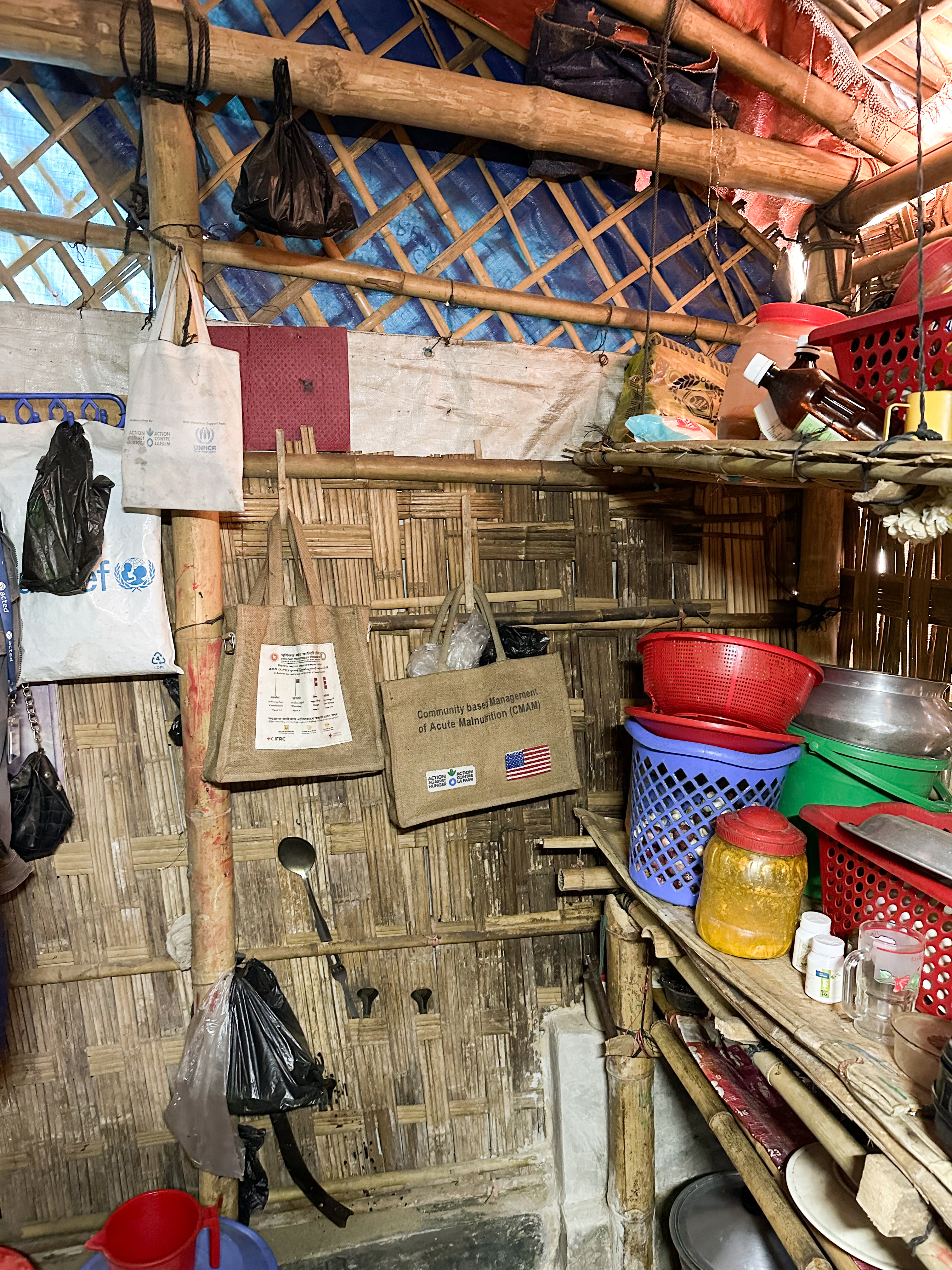
Jamila invited us into her modest home, which is shared by nine people. Apart from cooking utensils and a few mats from UNHCR, her family has practically nothing. “After my husband and one son were killed by the army, I fled across the border with the rest of my children in August 2017,” she says. In the camp, her eldest son Alungi was kidnapped by a gang, which demanded a ransom of 50,000 taka (CHF370) – about four months’ wages. The community pooled resources to help the poverty-stricken woman buy her son’s freedom.
“Living conditions here are terrible, there’s not enough food and we don’t feel safe,” Jamila says resignedly.
Her son Alungi now works as a volunteer in the youth group of the organisation that puts on the awareness-raising performances. At least it gives him something to do, he says. The hope is that by educating the children, the plays’ messages will also reach the parents – in particular the mothers, who rarely leave their homes.
This is a herculean task, however, given the dire situation. In recent months, there have been increasing reportsExternal link of arranged Rohingya child marriages. Some brides are sent as far as Malaysia, and the problem has long since spread to other countries. There has also been an increase in human traffickingExternal link of women, who are traded into sexual slavery in brothels throughout Southeast Asia.
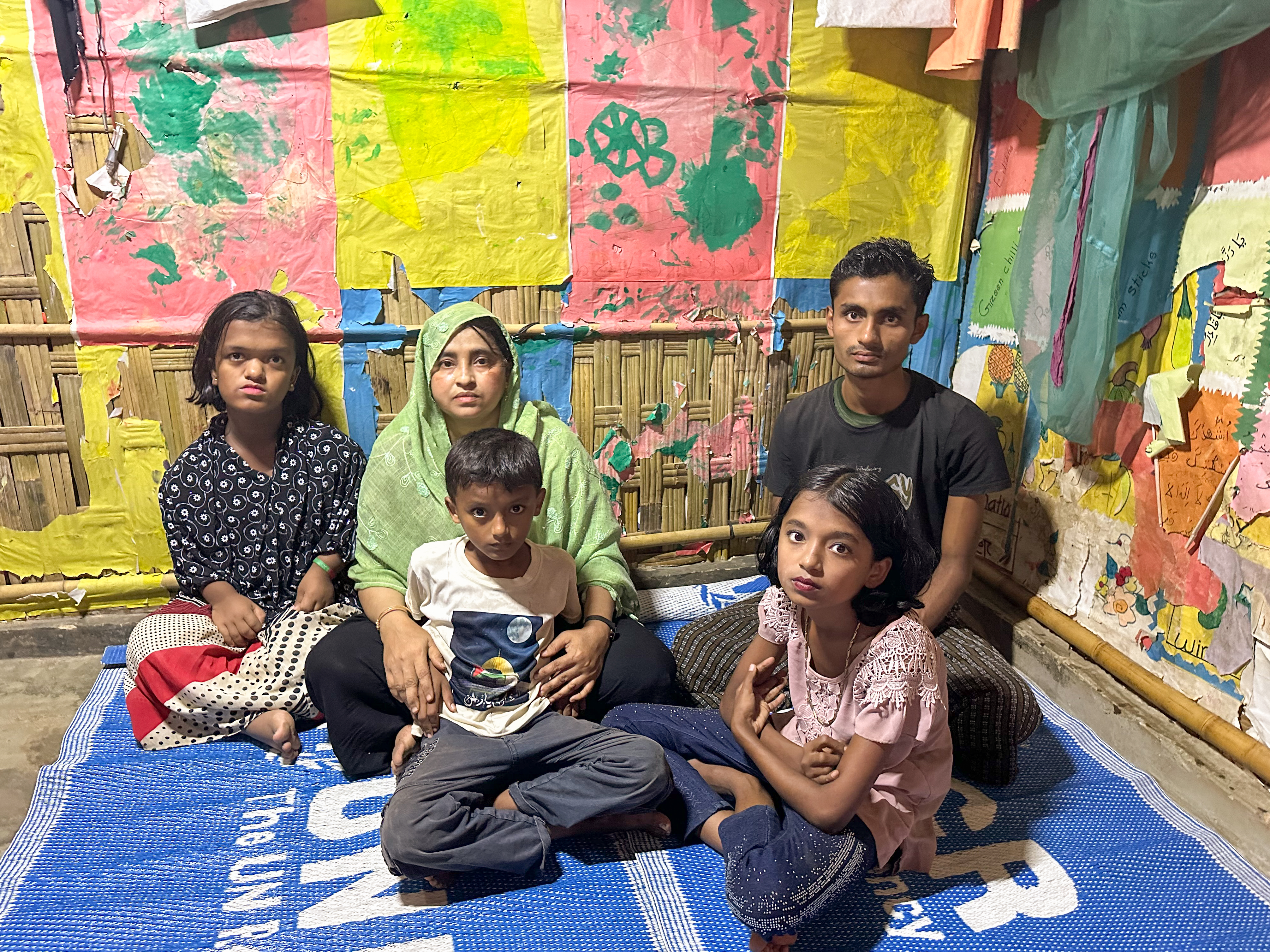
What now?
The Bangladeshi government wants to get rid of the Rohingya. They should go back to Myanmar, it says. But the stateless Rohingya have no intention of returning to the complex civil war there; and the Bangladeshi government cannot force them back.
The interim government under Nobel Peace Prize winner Muhammad Yunus has called on the international community to take in quotas of Rohingya refugees from the camps. Bangladesh is one of the poorest countries in Asia. It experienced political upheaval in the summer and the economy is severely strained. The Rohingya are not a priority for the government of this country of 170 million inhabitants.
Meanwhile, further problems are looming in the refugee camps. Off the record, experts say that they are “turning into reservoirs of soldiers for the Myanmar civil war”, as many disillusioned young men are stuck there with absolutely no prospects.
However, the refugee situation in Bangladesh hardly makes the headlines any more. The suffering of the Rohingya continues unabated.
Edited by Benjamin von Wyl. Adapted from German by Julia Bassam/gw

More
Our weekly newsletter on foreign affairs

In compliance with the JTI standards
More: SWI swissinfo.ch certified by the Journalism Trust Initiative









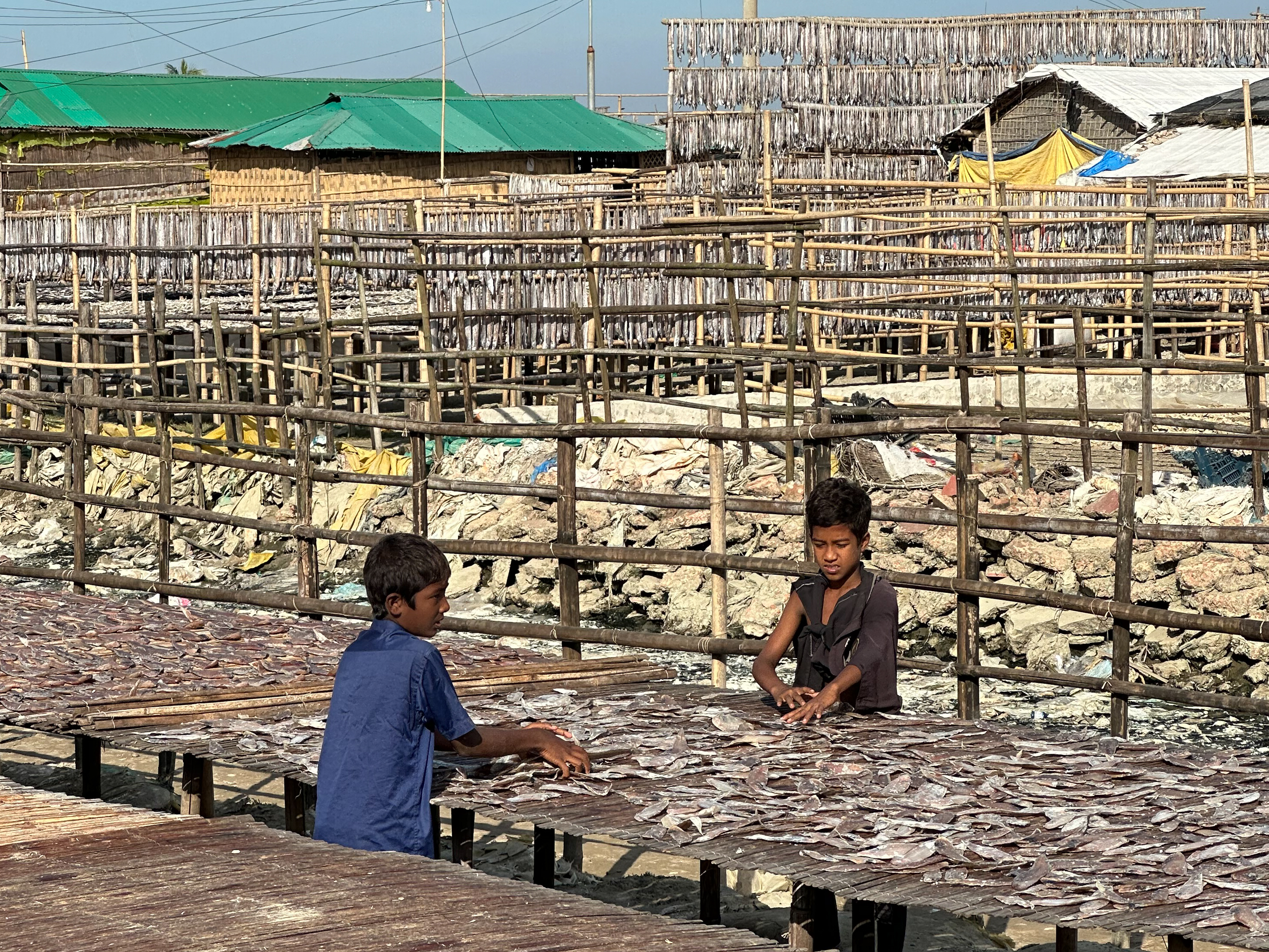
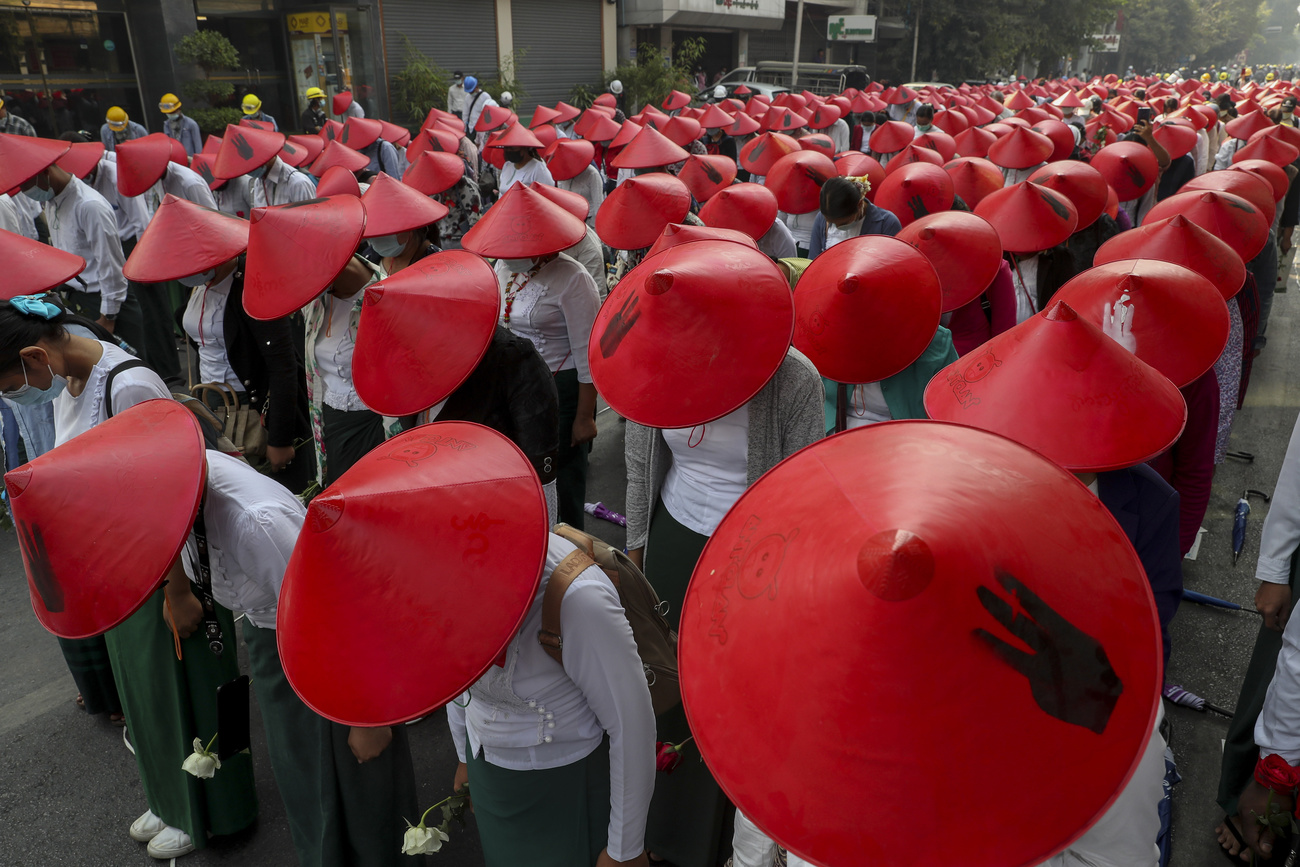
You can find an overview of ongoing debates with our journalists here . Please join us!
If you want to start a conversation about a topic raised in this article or want to report factual errors, email us at english@swissinfo.ch.